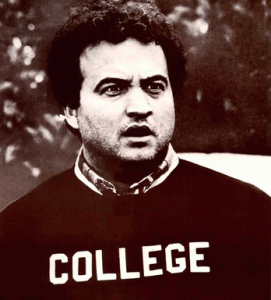

Inside Indiana Business: The Interns are Back at School…Who’s Minding the Projects?
 Now that it’s been a few months since our interns returned to campus, LeadJn reflects on the impact this summer work has had on our business and what we’d do differently. Here are the lessons LeadJen learned…
Now that it’s been a few months since our interns returned to campus, LeadJn reflects on the impact this summer work has had on our business and what we’d do differently. Here are the lessons LeadJen learned…
This summer I wrote about how to hire and manage summer interns. Having just implemented our first formal summer internship program, I was happy to share best practices for launching a successful program.
Now that it’s been a few months since our interns returned to campus, I thought it would be interesting to take another look at the program. Distance provides perspective, so I knew it would be instructive to see the impact this summer work has had on our business and what we’d do differently.
Here are the lessons I learned:
Plan from the beginning for the departure of your intern.
While it’s exciting to interview and hire interns, it’s also important to think ahead to when they leave. Most companies do a good job of defining projects and processes, but forget to consider who will manage the projects once the intern returns to the classroom. While some projects are self-contained and have a defined completion date, many interns will start projects that can and should be continued. For example, one of the assignments we gave our interns this summer was to go through the history of our clients and chart performance numbers. This information gives us valuable insight that we now use in our sales calls with prospects. Since this information becomes dated, we need to continue maintaining the updates so we can use the most recent information.
Before interns are hired, map out their exit. Align resources to their projects and arrange for projects to be transitioned a couple weeks before interns leave. One question we’re now asking is: should we have year round-interns to continue projects and hand them off to the next class of interns?
Get the most out of your training investment.
While interns are not full-time career employees, they still require a significant investment in training. Why then don’t more companies position internships as stepping stones to permanent employment? With this mindset, hiring decisions need to be more complete and methodical. During the interview process, it helps to have key individuals from throughout the organization spend time with candidates to assess how the candidates might be able to contribute in the future.
Anyone who has ever hired someone will agree that the resume doesn’t always point out the candidate’s interests or talents. That’s why scenario interviews are important. In these interviews, stakeholders describe a scenario closely related to their career area and ask candidates how they would respond. A pilot project at the beginning of the internship also can indicate the type of work for which the intern is best suited.
Plan ahead to make the internship valuable for the intern.
This last point seems like a natural, but I learned some valuable lessons that I think can make internships even more valuable for the intern. Although some projects that interns work on will be ongoing projects, it’s important to give interns projects with clear end points so they have something to add to their portfolio. A defined project also allows interns to get important feedback about the value they added to the company.
At the beginning of the internship, I tell all interns that they will be required to make a presentation to our executive team detailing how they contributed to the company. Not only did this give interns a feeling of accomplishment, it also excited our executive team.
Finally, formally review the intern at the midway point. This gives the intern the ability to reset goals and get feedback on performance, and it also allows the manager to realign projects based on success and interest. Since the goal of any internship program is to provide students with real-world experience, it’s important to make sure they are getting the right direction and are working on projects that leverage their talents.
Check out full article at Inside Indiana Business